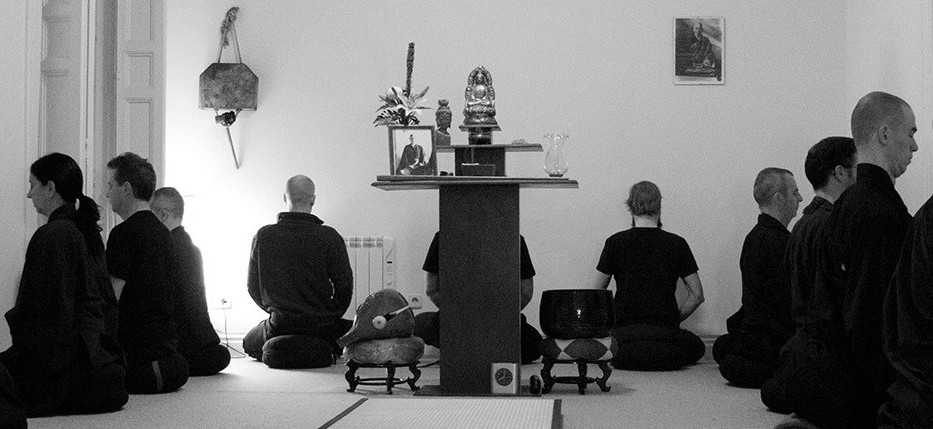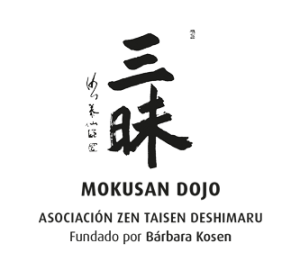Do-jo means “Place for the practice of the Way”. Moku-san: “Silent Mountain”.
The dojo of the Silent Mountain makes possible Zen practice in Madrid: Zazen since more than 20 years.
ZAZEN is the silent essence of Zen practice, the still action that will influence the concentration and observation of our actions in everyday life. This way, the practice of the Way of Buddha’s’’ awakening can establish itself in our life, which sometimes is confuse, complicated or unhappy.
One of the Cosmos laws which is contemplated in Buddha’s teachings is the interdependence of all existences. If we pay attention to this point, we’ll be able to understand why zazen is practiced in group and not alone.
Master Deshimaru compared practice at the dojo with a fire: the more wood there is, more powerful is the fire.
At the dojo we help each other to develop a strong practice. Following the schedule, concentrating in basic actions as how to walk and how to sit allows us to find again the natural dignity of the human being, often hidden by conditioning of the past.
INITIATION TO PRACTICE: Before sitting in Zazen it is essential to receive the advice of an experimented person. That’s why we practice an Initiation at the start of each month.
DAILY PRACTICE
Mokusan Dojo opens its doors for Zazen from Monday till Saturday. The schedule is as follows:
- –
- morning
- night
- Monday
- –
- 19:30
- Tuesday
- 7:00
- 19:30
- Wednesday
- 7:00
- –
- Thursday
- 7:00
- 19:30
- Friday
- 7:00
- –
- Saturday
- 10:00
- –
From Tuesday to Friday, after Zazen in the morning, we eat Guenmai, the Zen temples’ traditional rice soup.
SAMU DAILY PRACTICE IN MADRID
Parallel to Zazen practice, there is SAMU.
SAMU is the activity that makes possible the good functioning of the Dojo, generally manual work that we perform in concentration, mind and body in unity, not using words in vain and with no goal but that of offering our work to the community. Far from being a chore, Samu is practiced in total freedom of the spirit, being present and available in action. Frequently practiced, it becomes the practice’s best ally, without which it would be sterile.
SAMU schedule
 Guenmai (Preparation): Monday from 16:30 h. to 19.15 h.
Guenmai (Preparation): Monday from 16:30 h. to 19.15 h.- Cleaning and maintenance: Monday from 17:30 h. to 19.00 h.
- Kesa sowing: Saturday from 11.30 h. to 13.30 h.
All practitioners are welcome.
Photo Gallery











